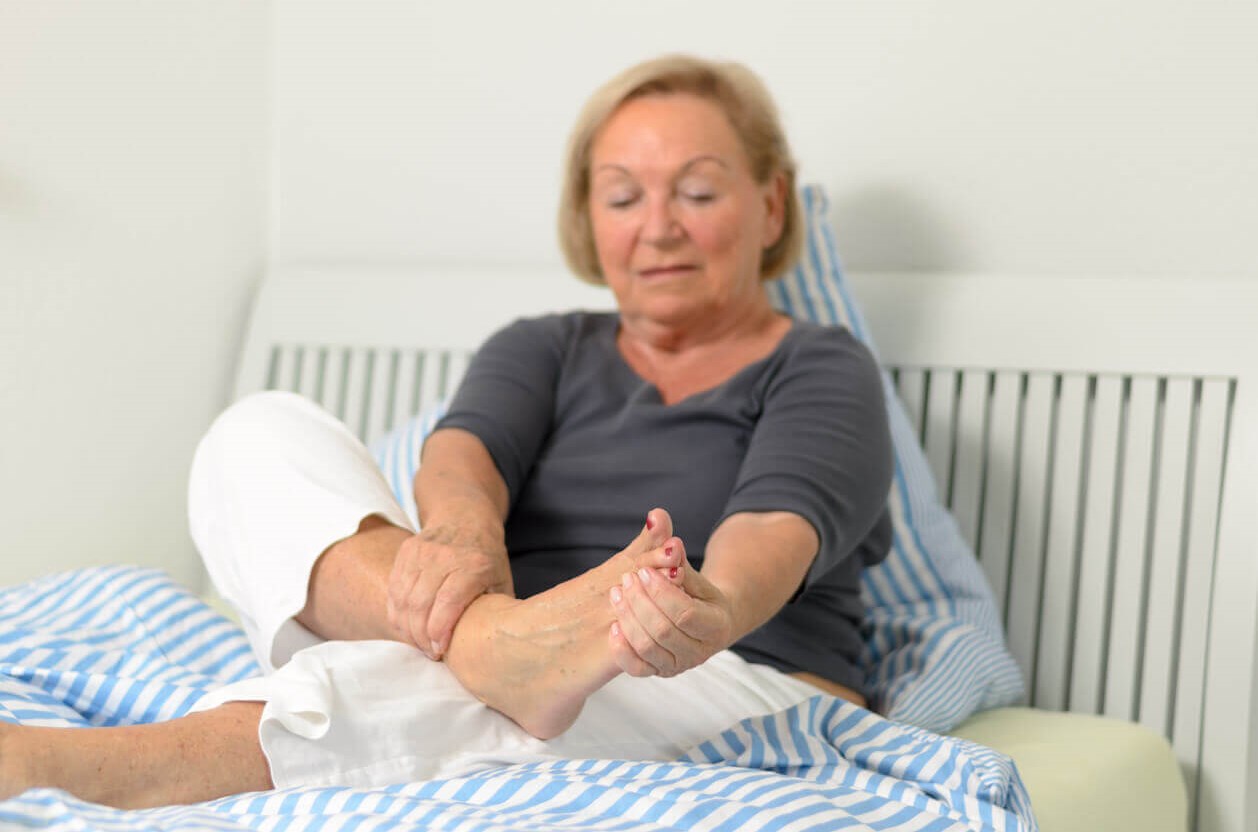
Top tips for looking after your feet
Blog
23 Jan 2024

Foot problems can impact your mobility, increase your risk of falls and prevent you from exercising as you normally would.
From nail problems to inflamed joints, our feet go through a lot, so here’s how to keep them in tip-top condition.
- Use a cream to keep the skin supple, especially around the heel. This will also help to prevent infections from dried, cracked skin.
- Keep your joints and toes moving. While you’re sitting in a chair do some feet and ankle movements. This will help the blood get to your feet and back up your legs.
- If your toenails are starting to get thick and aren’t growing as usual, you may have a fungal nail infection. The NHS website has some images of common fungal nail infections that you may find useful. You can see them here. Speak to your pharmacist about possible treatments.
- Lost some of the feeling in your feet? Check this out with your nurse or doctor in the surgery because poor sensation in your feet could affect your balance which can increase your risk of falls.
- If you struggle to reach your feet and are housebound, you can get a home visit from the Occupational Therapist (OT) department to see if there are any tools or implements to help with foot care. They may recommend long-handled tools like nail files, so you don’t have to bend over as much. Ask your GP’s receptionist how to get an OT home assessment.
- Look around your home for loose rugs, cables and other obstacles that could cause you to trip and injure yourself. Remember to always put on a light so you can safely see your way around, especially at night. It’s easy to miss the last step of the stairs!
- As we age, extra weight can affect the muscles that hold the foot in the correct position. The arch in your instep may fall and feet may become flatter, causing pain. A foot specialist may be able to correct this to keep your hips, knees and ankles aligned.
- Shoes or slippers that are loose and floppy can create a trip hazard, putting you at greater risk of falls, so make sure all footwear is comfortable and fits well.
Remember, anyone with health problems can see a chiropodist or podiatrist on the NHS. The nurse in your GP’s surgery may be able to refer you. Some also do home visits if you’re not able to get out and about.
For more top tips and expert advice, watch our recent Bone Matters session on how to avoid slips, trips and falls now.
Keeping active is one of the key ways to live well with osteoporosis and keep your bones and muscles strong. Check out our new exercise films for building up impact exercises and muscle-strengthening exercises today.
 Search
Search
 Login
Login


